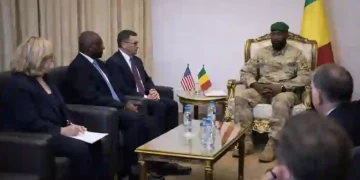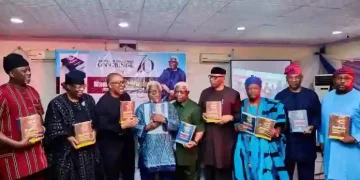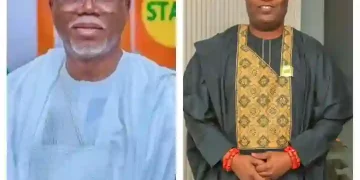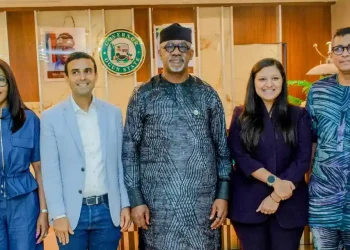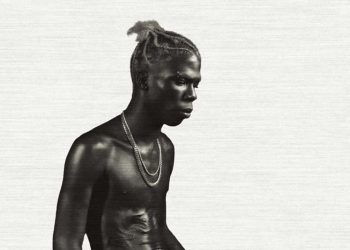I was online last week when I stumbled upon a clip that I had first seen a long time ago. There was President Bola Tinubu, GCFR, years before his presidency, defending a decision against detractors that perfectly encapsulates why I call him the King of the Long Game:
“…When I invested Lagos State funds in Econet they criticised me. But I used #4 billion to bring bock #19 billion to Lagos State. So, who really made the better decision?
…the truth is, when you’re superior to them in knowledge, in intellectual capacity, in professionalism, they do not engage on the issues. Instead, they try to drag you into the mud. And when you wrestle with a pig, you get stained.
…when will I rest from politics? I’ll rest when I free Nigeria.”
That video was recorded circa 2009. Before the Action Congress of Nigeria (ACN). Five years before the All Progressive Congress was formed and 14 years before he was elected our President. For that long, and I dare say even before, he has been working towards his goal. He played the long game. Many things have changed since then, but his intention remains the same. To free Nigeria.
To achieve his lifelong dream, he is once again playing the long game. This is evident by the policies his administration is pursuing.
Back to that clip, it reminded me why transformative leadership often looks like recklessness to short-term thinkers. The King of the Long Game understands something critics miss: the most impactful policies require time to mature, like investments that compound over decades.
The patience of visionaries
In our hyperconnected world, where instant gratification often drives decision-making and campaign cycles are every three years, we sometimes forget that the most transformative policies require time to germinate, grow, and ultimately transform lives. The question that should guide every good leader is not ‘what can we achieve by next year?’ but rather ‘what seeds are we planting today that will yield a harvest for generations?’
This long-term perspective is what distinguishes truly visionary leaders from mere administrators. Take Chief Obafemi Awolowo’s introduction of free primary education in the Western Region in 1955. Critics called it financially reckless, politically motivated, and economically unsustainable. Yet that single policy decision created the most educated generation in Nigeria’s history, producing the doctors, engineers, lawyers, and business leaders who would drive the nation’s development for decades.
The children who walked barefoot to those free schools in the 1950s and 1960s became the professors, CEOs, and innovators of the 1980s and 1990s. They raised families who valued education, created businesses that employed thousands, and built the intellectual foundation upon which modern Nigeria stands. Awolowo understood that education is not just a policy- it’s an investment in human capital that compounds over generations.
As Dr. Myles Munroe once said, “Managers think of the next position. Leaders think of the next generation”. That distinction could not be more relevant today.
Similarly, during Tinubu’s Lagos governorship (1999-2007), every major reform faced fierce criticism. Free WAEC and NECO examinations? “Unsustainable.” Jigi Bola? “Pointless.” The Health Insurance Scheme? “Poorly timed.” The BRT system? “A waste of resources.”
Today, Lagos remains Nigeria’s economic powerhouse precisely because of these “controversial” investments. The young professionals driving Lagos’s economy often trace their success to policies that removed barriers when their families couldn’t afford examination fees or healthcare.
NELFUND: The latest seed
Now we’re witnessing history repeat itself with the Nigerian Education Loan Fund (NELFUND). Since launching on May 24 last year, it has disbursed N56.85 billion to 298,124 students across 198 institutions, with a remarkable 92% approval rate on over 550,000 applications.
Critics ask why fund education when unemployment is high? Why invest in long-term programs when immediate needs press? This perspective fundamentally misunderstands transformative change. The infrastructure we build today serves this generation. The education we fund today serves the next generation.
Every NELFUND beneficiary represents a future innovator who will not just fill existing jobs but create new industries. When a brilliant student from rural Kebbi can study engineering debt-free, or a young woman from Cross River can pursue medicine with the guarantee of debt forgiveness after five years of Nigerian service, we are not just changing individual lives- we are building the human capital foundation for economic diversification.
The digital multiplier
What makes this moment unprecedented is the convergence of educational investment with Nigeria’s digital revolution. NELFUND beneficiaries will graduate into a Nigeria where fibre optic cables reach every corner, where 5G networks eliminate geographic barriers to opportunity.
A computer science student in Makurdi can now collaborate with MIT researchers, access Oxford’s online courses, and launch a fintech startup serving West Africa from Nigeria. This is the “digital dividend”-the exponential returns when brilliant minds have global access through reliable connectivity.
BY IDRIS OLORUNIMBE

